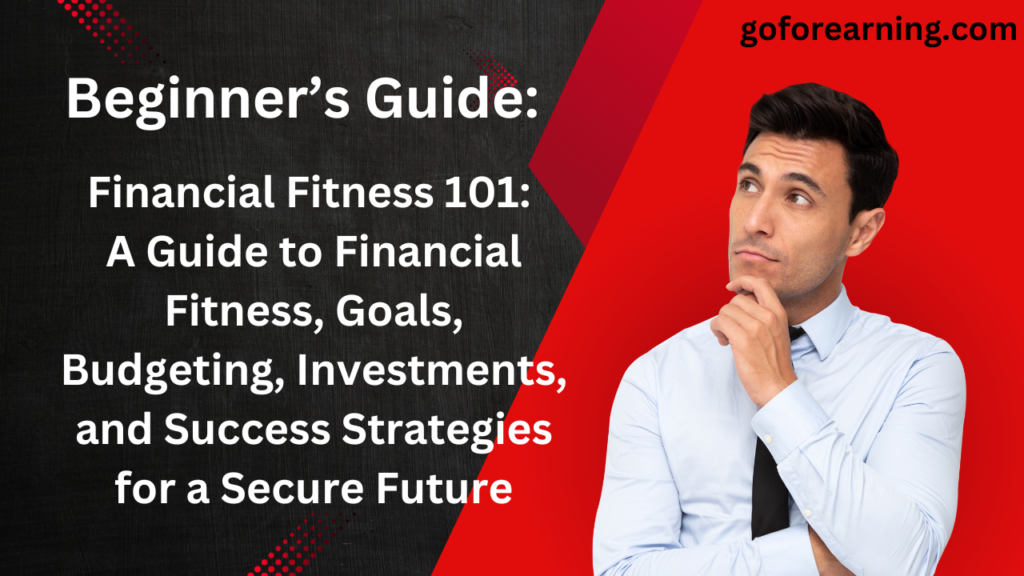To become financial fitness 101, you need to be disciplined, know what you’re doing, and have a plan. This guide will talk about important ideas and steps you can take to improve your financial health. This guide will give you the tools you need to be successful with your money, whether you’re just starting out or want to get better at it.
Set Clear Financial Goals

Having clear goals is the first step to being financially fit. Make a list of both short-term and long-term goals, like saving for an emergency fund, buying a house, or getting ready for retirement. Goals that are easy to understand will help you make smart financial choices.
Make an honest budget
Make a full budget that lists all of your income and all of your spending. Sort your purchases into groups to see where your cash goes. Try to set aside some of your income for savings and investments, making sure you have a mix between spending on things you need and spending on things you want.
Start and keep an emergency fund
Life is uncertain, and costs can come up out of the blue. Set aside enough money in case of a disaster to cover your living costs for three to six months. This extra cash is like a safety net—it gives you peace of mind during tough times without throwing off your long-term financial plans.
Smartly handle your debt

Be aware of the distinctions between “good” and “bad” debt. Set your sights on paying off your bills with the highest interest rates first. Do not take on more debt than you need to, and keep your credit score high. It is a very important part of getting good financial chances.
Invest for the Future
Look into different types of investments that fit your financial goals and level of risk tolerance. Spread out your risks and possibly improve your rewards by spreading out your assets. Review and make changes to your investment portfolio on a regular basis as your finances change.
Continuously Educate Yourself

The world of business is always changing, with new chances and trends appearing. Learn about personal finances, how to make investments, and how the economy is doing. Staying educated gives you the power to make smart choices and adjust to changing financial situations.
Protect Your Financial Future
To protect your financial future, think about insurance choices. Health, life, and property insurance are all part of this. Enough coverage protects your finances against unplanned events, which means your savings and investments are less likely to be affected.
Plan for Retirement
You should start making plans for retirement early. Put money into 401(k), IRA, or pension plans for retirement. Utilize the retirement benefits offered by your workplace and think about talking to a financial expert to make sure your retirement plan fits with your long-term goals.
Evaluate and make changes on a regular basis
Getting financially fit is an ongoing process. Check your finances often, go over your goals again, and make changes to your plans as needed. Things happen in your life that change your financial plan should also change.
Get Professional Help
If you want personalized advice based on your specific situation, you might want to talk to financial professionals like certified planners or financial experts. Their knowledge can help you make smart choices by giving you useful information.
Conclusion
Achieving financial health is a process that takes time, effort, knowledge, and the ability to change. You can take charge of your money, build wealth, and work toward a safe and happy financial future if you follow these rules and live by them every day. Remember that it’s never too late to start, and that taking small steps every day can add up to big cash gains over time.





